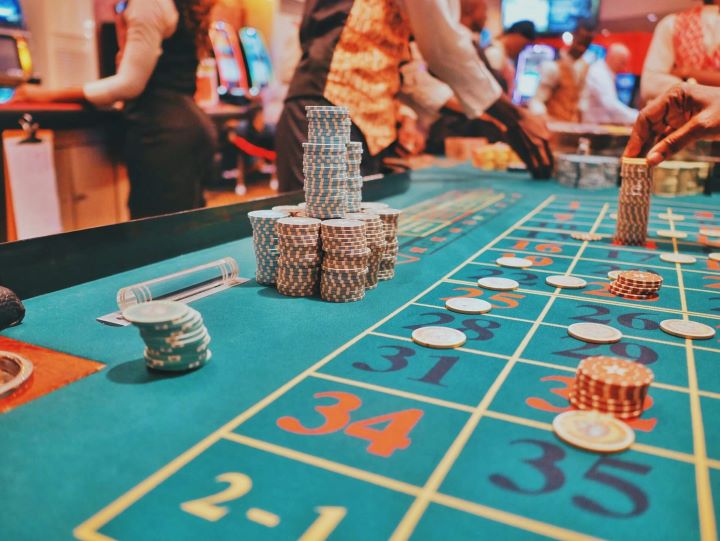
Table of Contents
Online gambling has been gaining much traction across the globe. Although gambling may be considered an option for entertainment, gambling behavior can often go beyond the boundaries. People with a gambling addiction are unfortunately increasing.
According to the National Council on Problem Gambling, more and more people are engaging in unhealthy levels of casino bets online. Most gambling addicts refuse to seek help, which further worsens the situation.
Recent gambling studies mention the importance of awareness generation among people who gamble regularly. Diagnostic and Statistical Manual of Disorders mentions addiction as a treatable condition. With proper peer support, gambling addicts can take control back of their lives, too.
Many organizations like Gamblers Anonymous are preoccupied with ideas and thoughts on helping people recover from gambling addiction. However, gamblers need to understand the effects an addiction can have on their respective families.
The families of gambling addicts also suffer from their loved one’s gambling addiction. From financial strains to emotional trauma, how gambling harms the family of someone preoccupied with gambling is countless.
Gambling Addiction or Problem Gambling: Help Someone Regain Control Over Compulsive Gambling Disorder
The Australian gambling scene has been thriving in recent years. Online gambling in Australia, especially, has earned many followers in the last several years.
Many people consider money gambling as a harmless social activity in Australia. However, gambling, despite all its social aspects, is something that can be addictive. Addiction related to gambling among young adults is on a rising end. Significantly, few people engage in responsible gambling online.
People with a gambling problem often find it difficult to choose healthy alternatives to gambling. They get deeply addicted to gambling and join compulsive gamblers or people with gambling disorders online.
As per the Problem Gambling Severity Index, sports betting and gambling venues are highly increasing online. Gambling activities are legal in most countries, too. Such favorable conditions are making online betting addiction increase among people.
According to Mayo Clinic, recovery from gambling addiction is possible. However, special attention should be given to repairing the damaged social relations of the gambler. That is, the friends and family of a gambler are often affected when someone develops a gambling problem.
Gambling is causing a significant drift in family relations. Gambling can become highly toxic and harmful to family and friends. The money and time spent on gambling sites are lost cause. Organizations like the Gambling Commission constantly discuss the risks associated with gambling money.
Gambling prevalence in the lives of people has been breaking apart families, too. So it is high time for health professionals and other experts to discuss the harmful impact of online casino gambling on families. There should also be discussions on the available professional support to help gambling addicts.
Gambling Addiction: What is It?
Gambling addiction is the condition in which the gambler engages in severe gambling patterns. They will feel the urge to engage in gambling even if gambling affects their financial stability, health, and well-being.
Compulsive gambling may result in extreme addiction. This can lead to many issues, including social and economic struggles. Warning signs for gambling addiction include symptoms of anxiety and many more.
Gambling issues can lead people to spend hours on gambling websites without any sense of time. Many gambling addicts lose sense of their expenses and end up spending unreasonable amounts of money.
An economic impact study of gambling in Tasmania proves that gambling addiction can have a severe toll on the financial stability of the person and their dear and near ones.

Gambling Problem: Signs and Symptoms
According to the social and economic impact study conducted by the Australian National University, gambling addiction exhibits several signs and symptoms. Some of them are as follows.
- Constant gambling
- High money spend
- Feeling restless
- Irritable
- Severe guilt and anxiety
- Depression
- Habit of lying
- Financial liabilities
Problem Gambling: Risk Factors
Many factors can lead someone to gambling addiction. They are as follows.
- Pre-existing mental health issues
- Young age
- Peer pressure
- Impulsive and experimenting personality
- Financial needs
How to Help Someone with Gambling Disorder?
Help is available for treating gambling addiction. From gambling helplines to support groups, treatment of gambling addiction currently has many choices. Similar to Alcoholics Anonymous, many organizations help with different forms of addiction.
Just like in substance abuse treatment, consistency is crucial to gambling addiction treatment. It can be a bit difficult to take control of your life again. However, through professional treatment options, recovery is possible.
One of the common issues associated with gambling addicts while taking treatment is the tendency to stop treatment. But you have to value the hope offered by treatments. If the addiction turns to various mental health issues, recovery can be pretty difficult.
People who gamble compulsively may mention suicide at times. It is essential to take this talk of suicide seriously and get them the help they need. As addicts are willing to risk something to engage in gambling, it is likely for them to end up with severe financial burdens. The people often associated with an addict should take the steps to identify the addiction and get them the necessary help.
Problem Gambler: Impact of Gambling on Families
The impact of gambling on one’s family is unimaginable. It can essentially lead to the collapse of family relations.
The first and foremost way in which gambling addiction affects families is via economic burdens. Losing money on gambling will eventually start affecting the well-being of one’s family. Many loving family members may try helping the gambler out of their financial issues, only for them to lose money, too.
The emotional impact gambling addiction causes on families is unimaginable. A Gambling addict will start paying less attention to their relationships, which can severely affect the people in their lives. The guilt, anxiety, worry, fear, and anger associated with a gambling addict can also lead to damage to family relationships.
The loss of trust, commitment, etc., can severely affect the coherence of a gambler’s family. The lack of attention from a gambler can essentially break down the spirit of their family members.
Final Word
It is not possible to effectively prevent gambling addiction, as it is totally up to the individuals. However, it is possible to arrange awareness programs and educational projects that target people who are at risk of gambling addiction. Making people understand the damaging impact gambling addiction can have on their families is crucial. Considering all the risks associated with gambling addiction, people should start engaging in responsible gambling.
FAQs
You can keep gambling participation at a healthy level by maintaining restrictions on the time and amount you spend. Keeping track of your gambling expenses and time can help you identify whether you are developing any addictive patterns.
Whenever a gambler wins a bet, they will feel a sense of joy or pride in their brain. The release of the happy hormone Dopamine causes this feeling. The constant secretion of dopamine urges people to continue doing whatever causes dopamine release. So, people continue engaging in gambling, looking for Dopamine release.
The most addictive gambling game is slot games. Slot games are mostly luck-based. So, the surprise wins cause a better release of Dopamine. This turns them the most addictive.










